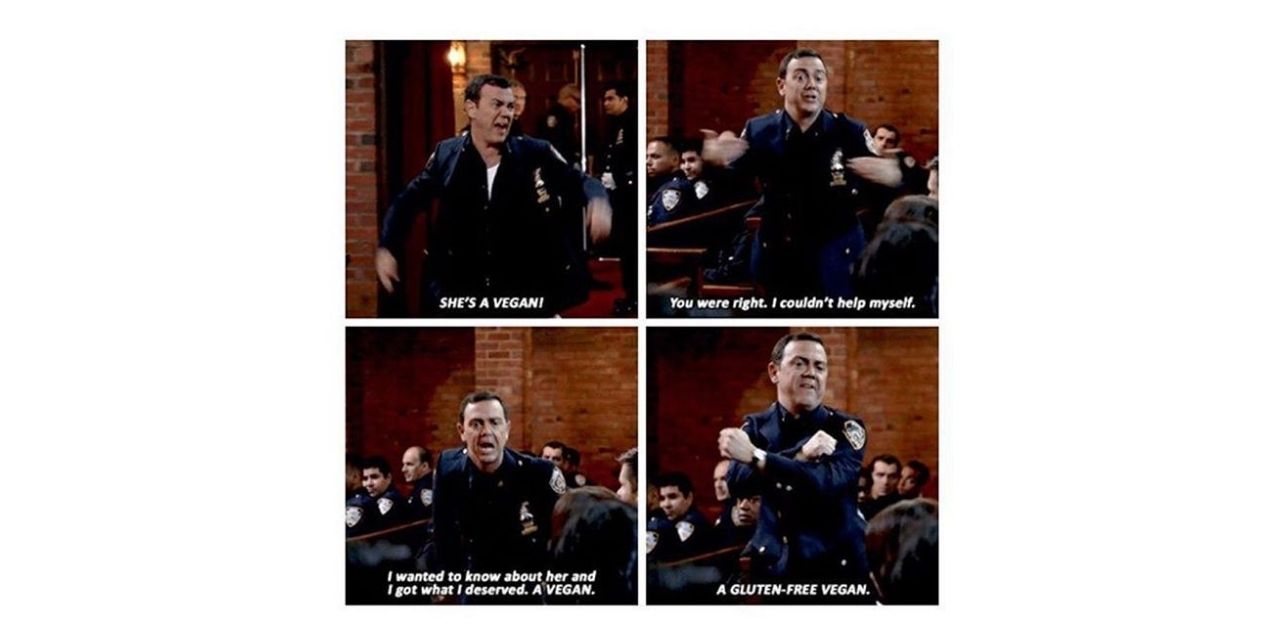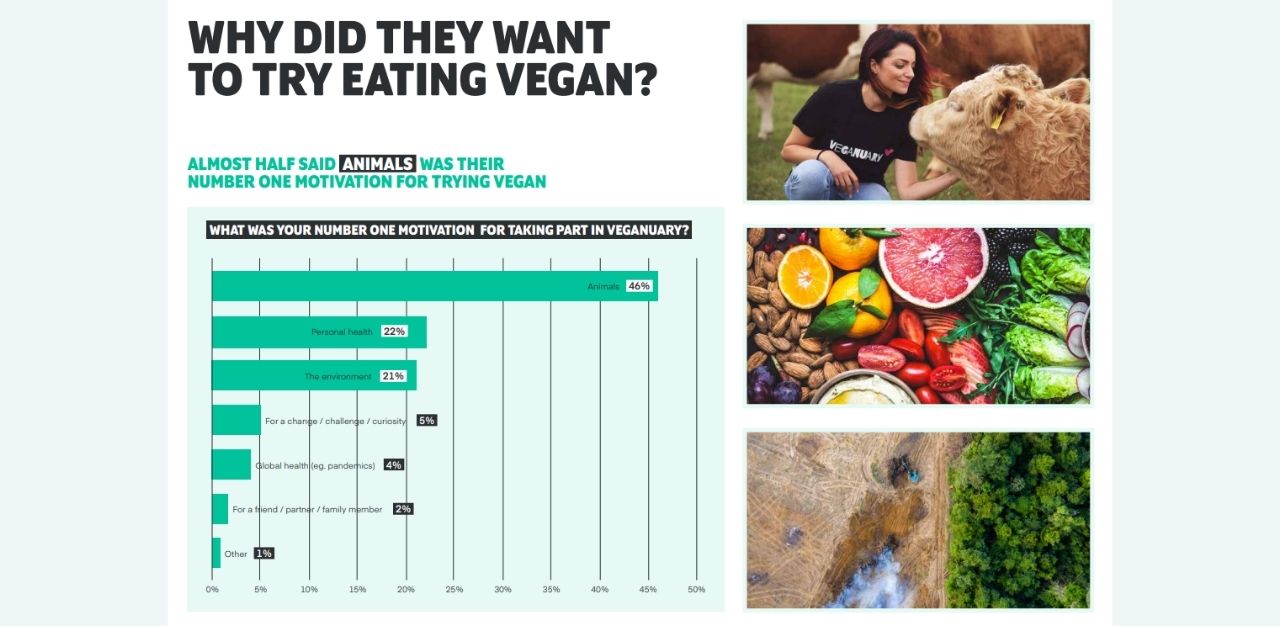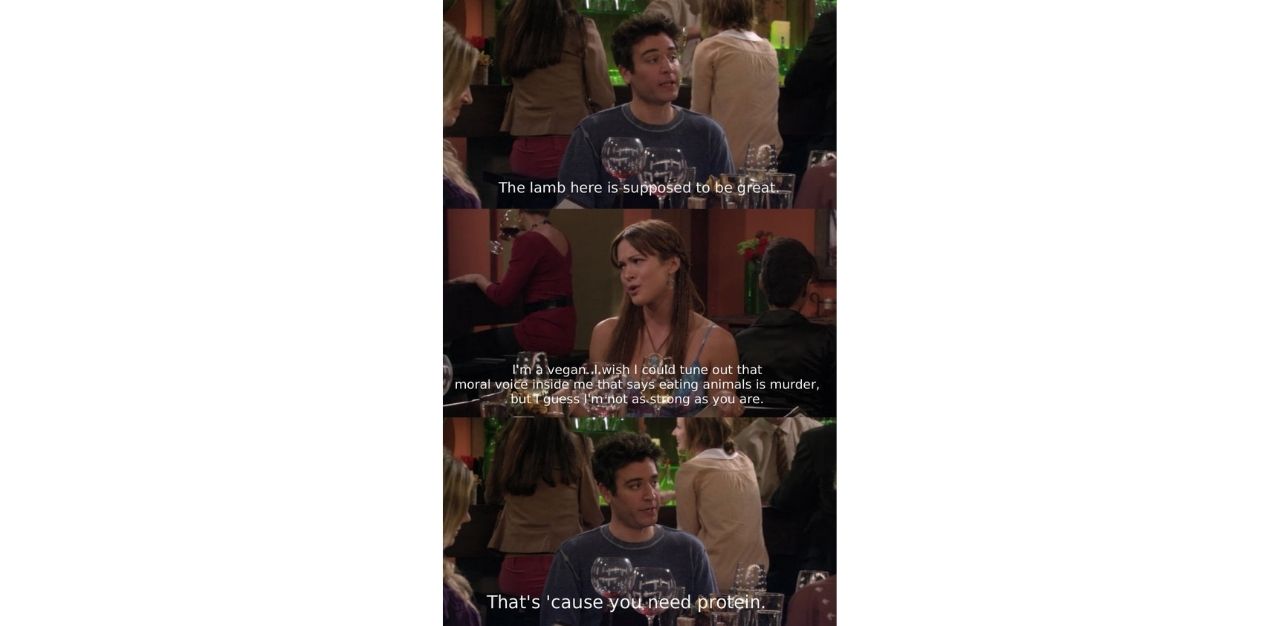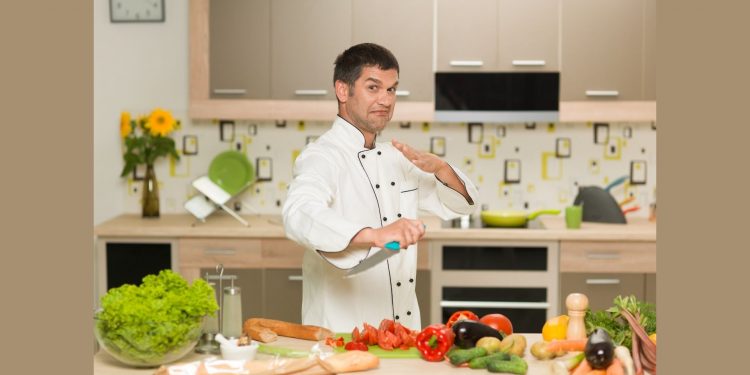Using vegans as the subject of punchlines and ridicule has become a trope of sorts in mainstream media and television. In popular American sitcom Brooklyn Nine-Nine, self-pronounced food connoisseur Charles Boyle breaks into an amusing fit when he finds out his casual lover is vegan.

This Veganuary, it suffices to say that our omnivorous readers do not want to scroll through yet another article on why the plants are (literally) greener on the other side. Rather, we shall explore all the reasons why many find vegans and what they stand for to be so inherently repulsive — as repulsive as drug addicts, as research shows, apparently.
For some context, people go vegan for three main reasons: health, the environment, and ethics.
In 2021, out of more than half a million people who signed up to be part of Veganuary worldwide, almost half reported that their main motivation was animal welfare, more than 1 in 5 for personal health, and about 1 in 5 for the environment.

“It really depends on the individual and which phase of life they are in. Those who are older look more towards their health. For the younger generation, it’s usually environmental and ethical,” says Ms Bianca Polak, Secretary of Centre for a Responsible Future (CRF), an organisation promoting plant-based diets.
For Mr Teo Jae Ren, 26, what he finds most deplorable about the vegan movement is the imposition of beliefs from a moral high ground. “If you just talk about veganism as a lifestyle, then I don’t believe anyone actually has any beef with it,” he says, probably intending the pun.
“If you’re talking about veganism as an activist movement, I believe that’s where you find people disagreeing with it, just as much as they would with any movement trying to extend beyond oneself in an evangelistic manner,” adds Mr Teo.
Agreeing, Ms Polak believes that the movement does have a bit of an image problem. “Some vegans can be quite aggressive in trying to get other people to adopt the diet, and they almost treat it like a religion of sorts — which it is not, obviously. It’s a lifestyle and a personal choice,” she says.
If you love How I Met Your Mother, you’ll probably love this one.

“Honestly, I think the vegans who are more evangelistic are those who do it for ethical reasons,” adds Ms Polak.
With almost half of vegans citing animal welfare as their main motivation for adopting the lifestyle, the rest of the mainstream public unfortunately runs a higher risk of having a bad run-in with the vocal extremists of the otherwise affable vegan community.
On the other hand, a vegan might not actually have to do or say anything before rubbing a meat-lover the wrong way. “By their mere existence, vegans force people to confront their cognitive dissonance,” social psychologist Hank Rothgerber at Bellarmine University, Kentucky tells the BBC.
According to Dr Rothergerber, people use around 15 strategies to deal with the “meat paradox” — the mental paradox that one can eat meat and continue to feel like a good person. One could, for example, experience this paradox when eating fish and chips while their beloved goldfish watches.
One such strategy could be dissociating meat from animals, or choosing not to acknowledge how meat is being produced. With a vegan holding up the moral mirror, staring this paradox in the face might be a little harder to do.
Another study led by Professor Benoit Monin from Stanford University showed that society tends to be threatened by people who have similar morals to us, yet are prepared to take the extra mile to stick to them. In a follow-up study, the team also found that meat-eaters who had thought about being negatively judged by vegetarians first, tended to associate vegetarians more strongly with negative words.
Let’s not forget that food is a key love language here in this food paradise we call home. Meat-heavy food trends like Mookata and K-BBQ are all the rage these days, further affirming the default omnivorous lifestyle.
Coupled with Asian cultural values of conformity, finding vegan accommodations as a group can come across as an impolite — or even deeply personal — inconvenience for those who take their food-tasting crusades seriously.
While many F&B outlets are starting to cater to their plant-based patrons, Ms Polak warns that companies don’t actually have vegans in mind, but vegetarians — so “meat-free” instead of “plant-based” might be a more accurate term to use on the menu.
A lot of vegans end up writing to restaurants complaining about this, which may give rise further to this sociocultural polarisation, she says.
No single reason
“The rationale for adopting this lifestyle can be so different,” asserts Mr Teo. And if that’s the case, it might be unwise to assume that another person is going to — if ever — be convinced by the same arguments that they were.
He says as much as people go vegan to improve their health, a similar proportion of people need more carnivorous diets such as the ketogenic diet for other health reasons. Some environmentalists would also argue that a flexitarian diet is better for the planet than a full vegan one.
Singer Miley Cyrus would agree with him. After six years of being a vegan, the Disney star shifted to a pescatarian diet, because she felt her “brain wasn’t functioning as well as it could be”.
“I think when you become the face of something, it’s just a lot of pressure,” she explained, citing the stress she received from her vegan followers. “And if I can adjust and I can learn how to operate at 110 [percent] living a vegan lifestyle that would be ideal. I just didn’t get there.”
What about meat alternatives, one might ask? Mr Teo finds it to be costly, less healthy, and in some ways, a roundabout way of reducing culpability.
But Ms Polak cautions against generalising all vegan options to be equally healthy. “If you eat a lot of fried and processed vegan foods, then it’s a no-brainer that it won’t improve your health,” she says, highlighting that alternative meats like Impossible are actually high in salt content.
Furthermore, these options are more catered towards heavy meat eaters rather than vegans, contrary to popular belief.
“Many vegans I know actually really love the taste of meat, but gave it up for ethical reasons. They will still eat impossible and the likes, but those who give up eating meat altogether for health will avoid alternative meat because it’s processed,” she adds.
Changing vegan advocacy
Regardless of which side you’re on, it still stands that some forms of advocacy rub off on people better than others.
These days, organisations like CRF have ceased to use graphic videos of animal slaughter in factory farms to traumatise people into abstaining from meat.
“Instead, we use more positive statistics to plant seeds of change, getting people to rethink their meat consumption habits,” says Ms Polak.
“We’re not telling anyone to go vegan overnight or even go plant-based full-time,” she adds, emphasising action-based advocacy over back-and-forth moral arguments. “I think there’s only so much you can do by telling people [to go vegan], instead, just find really tasty vegan options to try out together.”
Join the conversations on TheHomeGround Asia’s Facebook and Instagram, and get the latest updates via Telegram.














